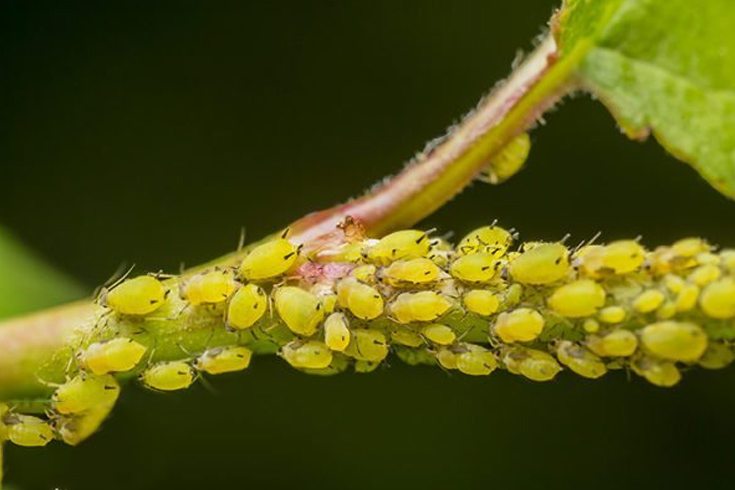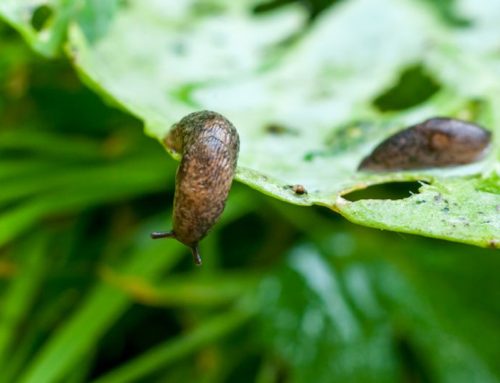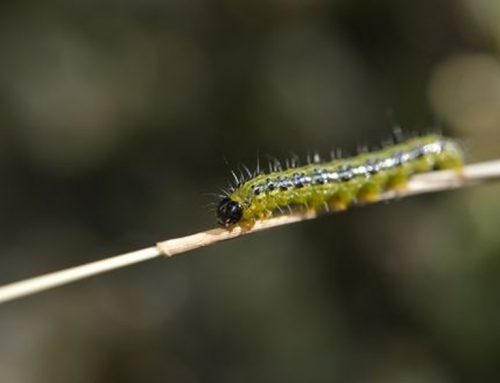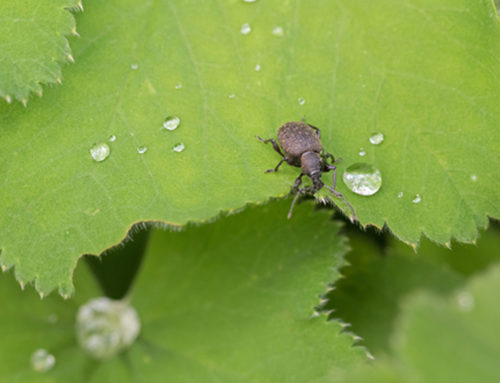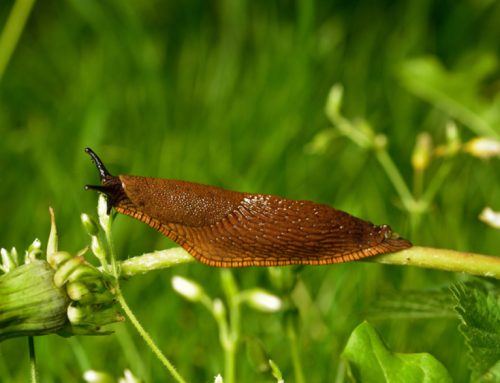Whatever you grow in your garden, you’re sure to have come across aphids. They’re a group of prolific pests that are commonly described as greenfly and blackfly, although there are also a variety of other pests in this group including the woolly aphid, root aphids and the cabbage aphid.
Aphids are almost always active except in an overwintering egg stage. But even in winter, if it’s mild enough adult aphids can keep on feeding. In optimum conditions the adult female can actually give birth to live young, missing out the egg stage and increasing the population very rapidly. It is perhaps the aphid’s ability to breed and multiply so prolifically that makes it such a persistent problem.
Problems with Aphids
Aphids cause a range of problems. Their main form of attack is to suck the sap from fresh young shoots. New buds and leaves of roses and just about anything else sprouting in spring, can become covered in layers of green bugs.
The range of plants affected is immense and the initial results are stunted growth, and weaker plants. However the problems don’t stop there. Heavily infested plants can die. Aphids can also spread disease. Just as mosquitoes can pass malaria to humans in areas where this disease is prevalent, aphids can spread plant viruses. These can be debilitating for crops such as tomatoes, potatoes, cucumbers, peas, marrows and squashes and many more besides.
Another problem related to the presence of aphids is sooty mould. Sometimes this is the most obvious sign of the presence of aphids. They secrete a sweet sticky honeydew, which covers the leaf surfaces, and sooty moulds grow on this residue, creating unsightly blackened leaves. Although the mould is not considered to be harmful, if there’s enough of it, it can reduce the amount of light that reaches the leaves and so reduce the plant’s abilities to make its own food.
Plant Protection Ready To Use for Ornamentals is a unique insecticide and acaricide which controls both aphids and other sucking and chewing pests as well as red spider mite an increasing problem both indoors and outdoors. For edible crops used Plant Protection Fruit & Veg Ready To Use Bug Killer or Concentrate.
Preventing Aphid Attacks
There are also some other things you can do to make your garden plants less susceptible to aphid attack.
Make sure growing conditions are favourable for sturdy plant growth. Choose the correct fertiliser for your plants and avoid using nitrogen-rich fertilisers that can encourage excessive soft, sappy growth that attracts aphids.
Make your garden wildlife friendly to encourage a range of beneficial insects and creatures. Provide suitable wildlife habitats such as hedges, woodpiles, ponds and nettle beds. There are many creatures that feed on aphids, including birds, insect larvae, earwigs and bats.
You can also choose to grow flowers that attract hoverflies, lacewings and ladybirds. These beneficial insects prefer small, simple flowers such as members of the Umbelliferae and Compositae families, as well as the poached egg plant (Limnanthes douglasii), Convolvulus tricolor and buckwheat. Remember that these natural pest control allies do actually need a supply of aphids to survive, so leave somewhere they are not a particular problem. A patch of nettles can be a good source of nettle aphids.
Check susceptible plants regularly and squash any aphids that are seen. Pick off heavily infested shoots and leaves and destroy.
Where there is a heavy infestation on a rose bush or other shrub you can use a strong jet of water from a hose to dislodge aphids. This is best achieved early in the day to allow the plants to dry more rapidly and avoid conditions conducive for fungal diseases to attack.
If the problem is widespread and you need a helping hand then use a suitable insecticide, such as Plant Rescue Ready to Use for Ornamentals. Spray flowering crops at dusk when bees are not active.

